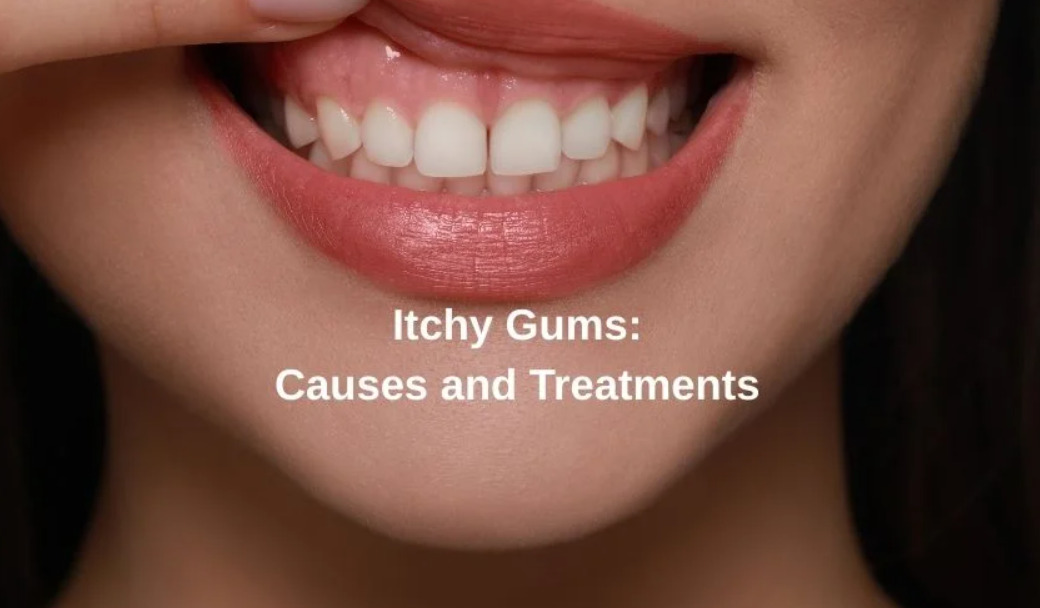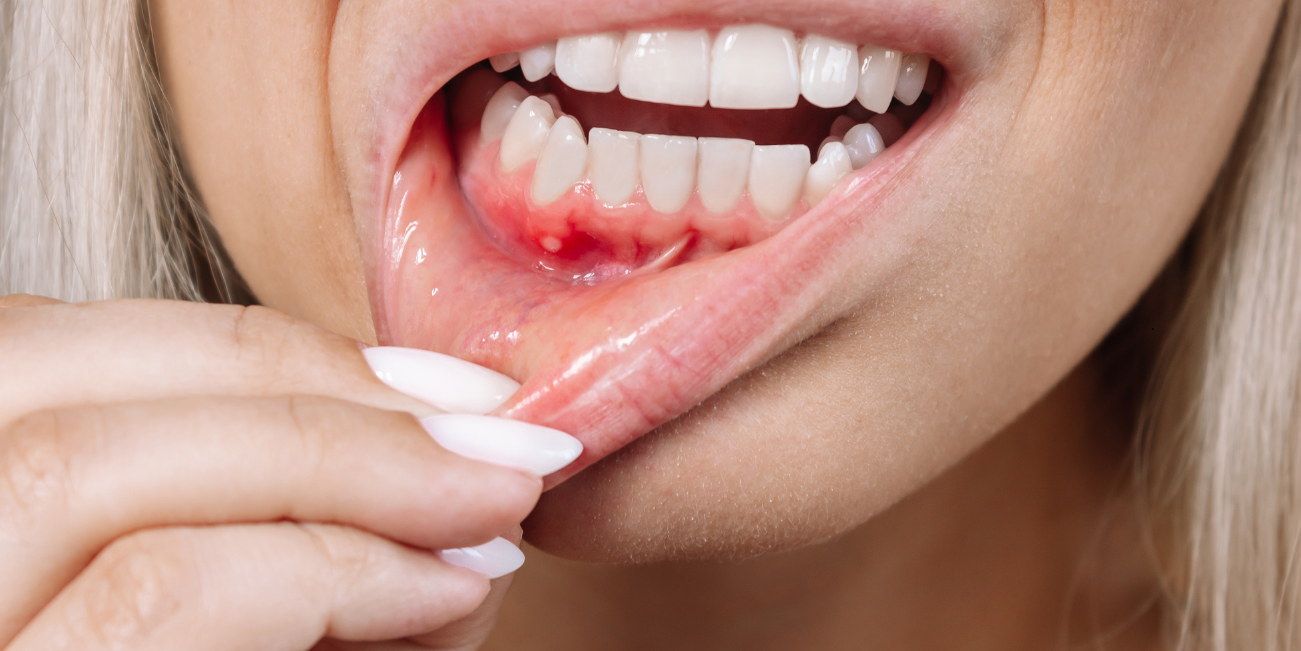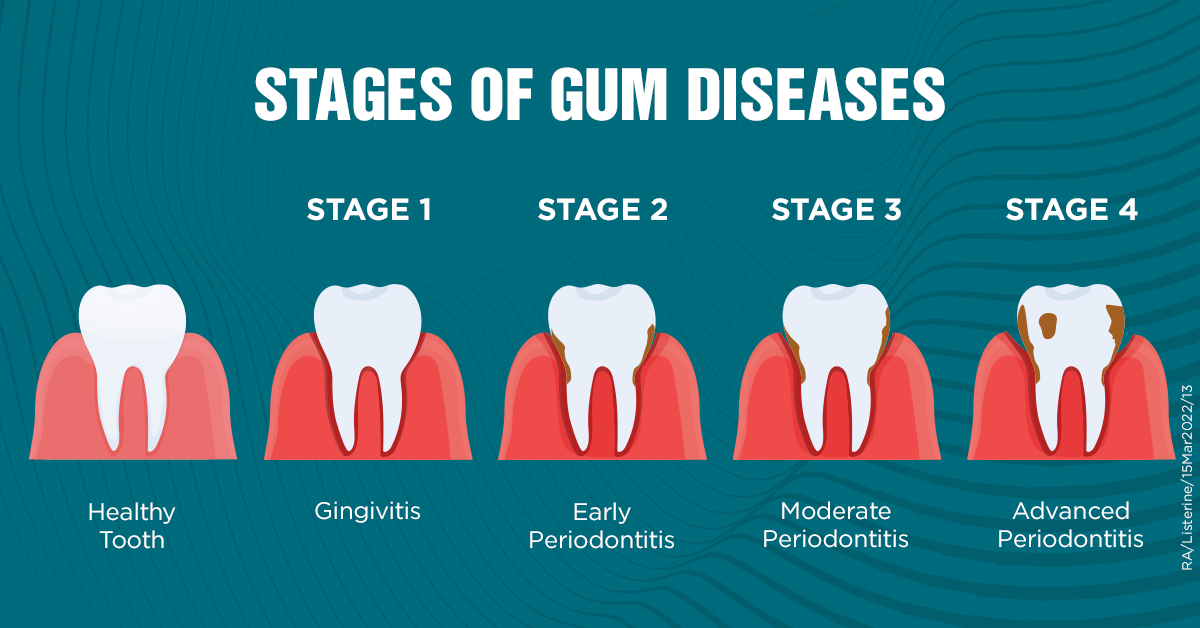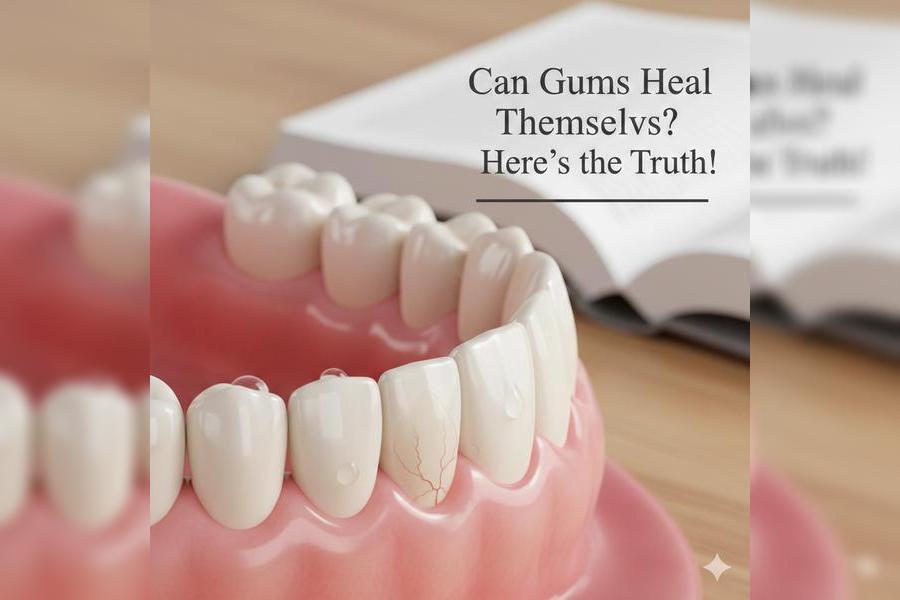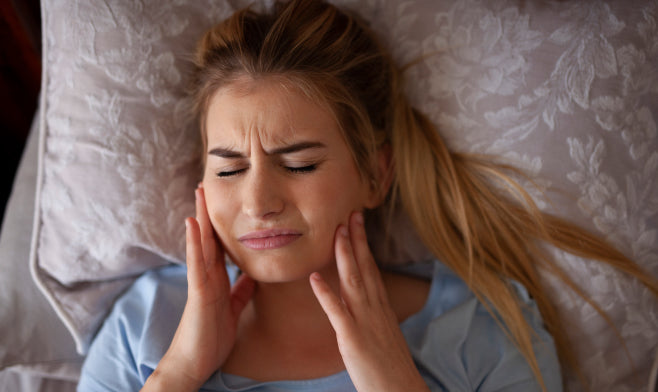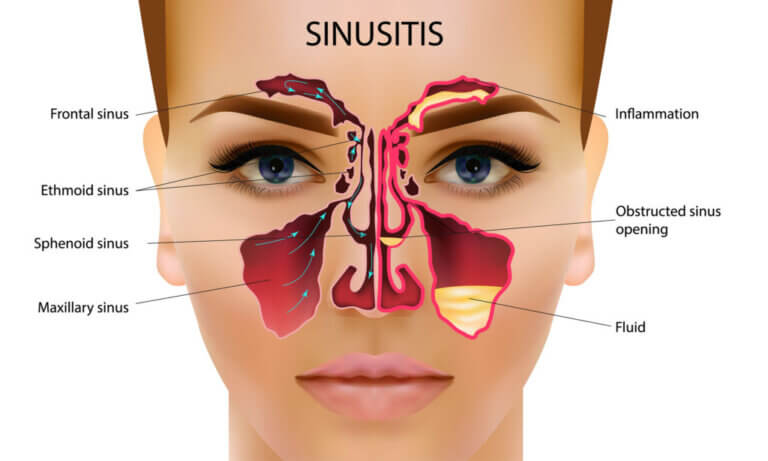Here’s a fact that’ll make you pause mid-toothbrush: about 47% of adults over 30 are walking around with some form of gum disease, and most don’t even realize it. The reason? It often doesn’t start with bleeding or pain like you’d expect - it starts with that weird, subtle itch. You know the one. That low-key, can’t-scratch-it, and makes you want to chew on your nails - that kind of itch.
If you’re here because you typed how to stop my gums from itching into Google at 2 a.m., you’re definitely not alone. And no - your gums aren’t “just being weird.” That itchy feeling is your body’s way of waving a little flag and saying, “Hey, something’s going on down here!”
Most people ignore it. They’ll swish some mouthwash, maybe brush a little harder, and hope it goes away. But here’s the deal: itchy gums are like the “check engine” light in your mouth. Ignore it long enough, and the simple annoyance can spiral into something much bigger - think gum recession, infections, or even tooth loss.
Worry not - It’s fixable. And in most cases, it’s easier to fix than you think. Let’s dig into what that itch is really trying to tell you - and how to actually shut it down for good.
The Itch Isn’t Random: What Your Gums Are Really Trying to Say
Let’s cut through the noise: gums don’t itch for no reason. That annoying sensation is usually your body’s polite way of saying, “Hey, buddy - we’ve got a situation here.” And the faster you figure out what that situation is, the easier it’ll be to stop the madness.
Here’s the thing - itchy gums are one of those symptoms that seem simple but actually have a whole range of possible causes. And they’re usually pretty telling once you know what to look for.
The Big Offenders Behind the Itch
- Plaque Accumulation: The traditional villain. Plaque is an adhesive substance made up of bacteria that coats your gumline like a bad ex. It irritates the tissue, and, weirdly enough, it itches.
- Gingivitis: This is simply early-stage gum disease giving a knock at the door. Mostly, it begins with slight irritation and itching before you realize there is bleeding.
- Allergic Reactions: You know, occasionally it is not your gums that are being allergic, but it is that extra-strength whitening toothpaste or new mouthwash that you have just begun to use.
- Hormonal Changes: Surprisingly, stress or pregnancy or even a monthly period can lead to changes in your gums; they can become more sensitive and reactive.
- Healing Gums: This itchy feeling may simply be a part of the healing process. Especially, when you floss too hard or get a dental procedure done.
Trick of the trade: The first thing that most people will do is to scrub harder. But rubbing the dubious gums is like scratching a mosquito bite until it bleeds - it only gets worse. Rather, consider the itch as a clue and reverse engineer down.
Quick Fixes vs. Long-Term Solutions: What Actually Works

To be honest with you, when you have itchy gums, you do not question why but just wish that it could be gone. And fast. I get it. The tricky part, though, is that there is quite a difference between letting the itch calm down at this moment and ensuring that it never recurs.
And so it is time to address both sides of the coin - beginning with the easy wins you can put into practice today.
Short-Term Relief: The “Make It Stop” Moves
- Saltwater rinse: A warm saltwater rinse is what you should start with and see if it’s helping you in any way.
- Brush smarter, not harder: Take a soft-bristle brush and do light, circular motions. Over pressure is only going to make your gums stiff.
- Chill out (literally): Place an ice pack on the side of your face. This will help your inflamed tissues and the itchy sensation.
- Test your products: In case the itch has begun immediately after changing toothpaste or mouthwash, it is a great hint. Substitute it with something milder and check whether things get recovered.
- Flossing is non-negotiable: It is not only about getting that piece of popcorn stuck in the teeth — flossing will get off the coating of bacteria that cannot be removed by brushing.
- Get a professional cleaning: In case it has taken more than six months since your last visit to the dentist, make one. Hardened plaque or tartar will not be easily removed without the instruments of a professional.
- Upgrade your oral care routine: Consider adding a product designed to tackle irritation at the root — like The Goodbye Company Gum Disease Oral Solution. It’s packed with Omega-3 and Omega-9 oils, plus neem and clove essential oils that help calm inflammation and keep bacteria in check, naturally.
If the itch keeps coming back no matter what you try, it’s not a “you” problem - it’s a gum health problem. And that’s totally fixable once you start treating it like one.
The Plaque Problem You Can’t See But Definitely Feel
You might think your teeth look clean - but plaque is sneaky. It’s a biofilm of bacteria that clings to the gumline, and once it’s there, it irritates your tissue like crazy.
Why Plaque Is the Real Villain
Here’s what happens behind the scenes:
- Bacteria in plaque: They release toxins that irritate and inflame your gums.
- Early stage – Gingivitis: It often starts with itching, not pain.
- Advanced stage – Periodontitis: If left untreated, gums pull away from teeth and bone loss begins.
Now, you might be wondering, “How do I know if plaque is the cause of my itching?”
The answer is pretty simple: if the itching happens along the gumline, is worse after eating, or improves after brushing, plaque is likely the culprit.
But, plaque hardens into tartar in just 48 hours. And once it’s tartar, no toothbrush on Earth can remove it. You’ll need a professional cleaning.
Preventing the Plaque Itch
- Brush for 2 minutes twice a day: No shortcuts — consistency matters.
- Use a fluoride toothpaste: Helps strengthen enamel and reduce bacterial growth.
- Don’t skip the tongue scraper: Bacteria love to hide there too.
- Add a gum health rinse: Consider using a rinse like The Goodbye Company Solution to hit bacteria brushing might miss.
Allergies, Hormones, And Weird Itch Trigger

If you’re still wondering how to stop my gums from itching and none of the usual suspects seem to fit, here’s a twist: the cause might have nothing to do with brushing or flossing.
Product Allergies You Didn’t Expect
Ever switched to a “whitening” toothpaste or fancy new mouthwash and noticed itchy gums shortly after? That’s not a coincidence. Many oral products use SLS (sodium lauryl sulfate), artificial flavors, or strong essential oils that can irritate sensitive gum tissue.
What to do:
- Switch to an SLS-free toothpaste: A gentler choice for sensitive gums.
- Choose natural ingredients: Look for products with neem and clove oils — just like those in The Goodbye Company Solution.
- Avoid alcohol-heavy mouthwashes: They can dry out gum tissue and worsen irritation.
Hormones and Itchy Gums
Your gums have hormone receptors, and they respond to changes in your body. That’s why many people notice increased gum sensitivity during pregnancy, menstrual cycles, or even stress.
What’s happening:
- Hormonal shifts: They increase blood flow to gum tissue.
- Higher sensitivity: This makes gums more vulnerable to bacteria and plaque.
- Inflammation risk: Even minor buildup can trigger itching and irritation.
If you suspect hormones are to blame, the solution isn’t just brushing harder - it’s doubling down on prevention. A gentle, consistent oral care routine and an anti-inflammatory rinse can make a world of difference.
Causes vs. Solutions for Itchy Gums
|
Cause |
What’s Happening |
Solution |
|
Plaque Buildup |
Bacteria irritate gum tissue |
Daily brushing & flossing, professional cleaning |
|
Gingivitis |
Early gum disease causing inflammation |
Antimicrobial rinse, dental check-up |
|
Product Allergy |
Reaction to toothpaste or mouthwash |
Switch to SLS-free, natural products |
|
Hormonal Changes |
Increased gum sensitivity |
Gentle brushing, anti-inflammatory rinse |
|
Healing Tissue |
Gums regenerating after trauma |
Saltwater rinses, avoid irritation |
|
Dry Mouth |
Lack of saliva increases bacterial growth |
Stay hydrated, use moisturizing rinses |
The Dry Mouth Dilemma: When Saliva (or Lack of It) Starts the Itch
Here’s a fun fact nobody tells you: your saliva is basically your mouth’s built-in cleaning system. It neutralizes acids, washes away bacteria, and keeps your gum tissue happy. But when your mouth is drier than a bad Tinder date, things start to go downhill - fast.
Why Dry Mouth = Itchy Gums
If you’re dealing with itchy gums alongside bad breath, burning sensations, or a chalky feeling, chances are you’re not producing enough saliva. Without that constant rinse, bacteria party harder, plaque multiplies faster, and your gums become more irritated.
Dry mouth (aka xerostomia) can be caused by:
- Medications: Antihistamines, antidepressants, and blood pressure meds are notorious for this.
- Dehydration: Obvious but often overlooked — most of us don’t drink nearly enough water.
- Mouth breathing: Whether from allergies or habit, it dries out tissues overnight.
- Aging: As you get older, saliva production naturally dips.
People often ask: “Will drinking more water really help my gums stop itching?”
The answer is yes - but only part of the solution. Hydration is step one. Step two is creating a gum environment where bacteria can’t thrive in the first place.
What You Can Do
-
Sip water throughout the day, not just at meals.
-
Chew sugar-free gum to stimulate saliva production.
-
Avoid alcohol-based mouthwashes that dry your mouth further.
-
Add a natural oil-based rinse like The Goodbye Company Gum Disease oral solution - it helps soothe tissue and balance bacteria even when saliva levels are low.
When Grinding And Clenching Make Your Gums Go Crazy
One of the sneakiest causes of itchy gums is something most people don’t even realize they’re doing: teeth grinding (aka bruxism). And no, it’s not just a nighttime habit - you might clench your teeth during the day without even noticing.
How Bruxism Affects Your Gums
When you grind or clench, you’re putting constant pressure on the periodontal ligaments - those tiny fibers that anchor your teeth in place. Over time, this pressure irritates the gum tissue around the roots, causing inflammation, sensitivity, and yes… that weird, itchy feeling.
Here’s how you might know bruxism is to blame:
-
Your gums itch mostly in the morning.
-
You notice jaw tension or headaches when you wake up.
-
Teeth feel slightly loose or sore.
If this sounds familiar, brushing harder won’t fix it - in fact, it could make things worse.
Solutions That Work
-
Wear a night guard: A simple dental appliance can protect your gums from grinding pressure.
-
De-stress: Bruxism is often triggered by anxiety - meditation, jaw exercises, or even stretching before bed can help.
-
Massage your gums: Gently massaging with clean fingers can improve circulation and reduce that itchy sensation.
People often ask: “Can itchy gums go away on their own?” Well - If bruxism is the cause, the itching might fade temporarily, but it’ll keep coming back until the root issue is addressed.
Infections, Fungal Overgrowth, And Other Weird Gum Itch Causes

Here’s where things get a little more murky. Sometimes, itchy gums aren’t caused by poor hygiene or plaque - they’re a sign of something more serious brewing beneath the surface.
The Fungal Factor: Oral Thrush
One common but often misdiagnosed cause of itching is oral thrush, a fungal infection caused by an overgrowth of Candida. It’s more common than you think, especially if you’ve recently taken antibiotics, have a weakened immune system, or wear dentures.
Signs you might have it:
-
Itchy or burning gums.
-
White, cottage cheese-like patches on the tongue or inner cheeks.
-
A “fuzzy” or “coated” feeling in your mouth.
If that sounds familiar, see a dentist or doctor. Thrush is treatable with antifungal medication - but it won’t go away with brushing alone.
Bacterial Infections and Early Periodontitis
If your gums are not just itchy but swollen, red, or bleeding, you could be dealing with a bacterial infection - an early sign of periodontal disease. This is where the stakes get higher: untreated, it can lead to gum recession, bone loss, and even tooth loss.
What you can do:
-
Book a professional dental cleaning ASAP.
- Use an antimicrobial rinse to control bacterial overgrowth.
- Boost your gum’s natural defenses with omega-rich oils - this is where The Goodbye Company Gum Disease oral solution shines. The neem and clove oils in it have natural antibacterial and antifungal properties that help fight infection before it escalates.
Redesigning Your Daily Oral Routine
Let’s be real: brushing and flossing are the bare minimum. If you’re serious about figuring out how to stop my gums from itching, you need a routine that does more than just clean - it needs to heal, protect, and prevent.
Here’s how you can level up your oral care game:
Morning Routine: Defense Mode
-
Brush with a soft-bristle brush for 2 minutes.
-
Floss gently to remove overnight plaque buildup.
-
Rinse with a natural, anti-inflammatory mouthwash.
Midday Refresh: Bacteria Patrol
-
Sip water or chew sugar-free gum to boost saliva.
-
Avoid sugary snacks that fuel bacterial growth.
-
If you can, do a quick rinse with The Goodbye Company oral solution - it’s gentle enough for daily use and keeps your gums calm.
Night Routine: Deep Healing
-
Brush and floss again, focusing on the gumline.
-
Use an oil-based rinse to reduce inflammation overnight.
-
If you grind your teeth, wear a night guard.
Pro tip: Consistency matters more than intensity. A fancy toothbrush is useless if you’re brushing once a day. But a simple, consistent routine with the right products? That’s how you turn the tide.
Home Remedies That Are Effective
 You’ve probably seen countless internet “hacks” for itchy gums - from swishing coconut oil to brushing with baking soda. And while some of them can help, others are about as useful as chewing on a stick of celery. Let’s separate the legit from the lies.
You’ve probably seen countless internet “hacks” for itchy gums - from swishing coconut oil to brushing with baking soda. And while some of them can help, others are about as useful as chewing on a stick of celery. Let’s separate the legit from the lies.
Tried-and-True Natural Remedies
These remedies have been backed by both research and centuries of traditional oral care:
-
Saltwater rinse: The OG of gum soothers. Mix 1 teaspoon of salt into warm water and rinse for 30 seconds. It reduces inflammation, balances bacteria, and relieves itching.
-
Aloe vera gel: Yep, the same stuff you use on sunburn. It has antibacterial and anti-inflammatory properties - apply a small amount to your gums for quick relief.
-
Green tea: Sip it or use it as a rinse. Green tea contains catechins, which fight gingivitis-causing bacteria.
-
Clove oil: A powerful antimicrobial. Just a drop mixed with a carrier oil can calm irritated gums. (This is one reason The Goodbye Company Gum Disease oral solution includes it - it works.)
Long story short, can home remedies cure gum disease? Short answer: No. They can support gum health and provide relief, but if your itching is caused by an underlying condition like periodontitis, you’ll still need professional care.
Overhyped “Hacks” to Skip
-
Hydrogen peroxide rinses: Effective for short-term disinfection, but overuse can erode enamel and irritate gums further.
-
Baking soda scrubs: Too abrasive for delicate gum tissue. Save this one for whitening your sink, not your mouth.
-
Charcoal toothpaste: Trendy? Yes. Helpful? Not really. It’s abrasive and offers zero benefits for itching.
The takeaway here is simple: natural remedies are a tool, not a cure. Use them to manage symptoms while you work on the root cause.
Lifestyle Changes That Make a Surprisingly Huge Difference
Believe it or not, your gums don’t live in isolation. Your diet, stress levels, sleep quality, and even exercise habits all affect oral health. If you want to completely solve the “how to stop my gums from itching” mystery, you’ve got to look at the bigger picture.
Nutrition: Feed Your Gums
Your gums need nutrients to stay healthy, especially vitamin C, vitamin D, and omega-3 fatty acids.
-
Eat more leafy greens, citrus fruits, and fatty fish.
-
Add walnuts or chia seeds to your diet for natural omega-3s.
-
Limit sugary snacks - they fuel bacteria and accelerate gum problems.
Stress: The Hidden Trigger
Here’s a wild one: stress is directly linked to gum irritation. Elevated cortisol levels weaken your immune response, making it easier for bacteria to thrive. And let’s not forget - stress often leads to teeth grinding, which we already know can make gums itch.
Try this:
-
Practice deep breathing or mindfulness for 5 minutes a day.
-
Stretch your jaw muscles before bed to reduce clenching.
-
Prioritize 7–8 hours of sleep - your mouth heals while you snooze.
Ditch the Tobacco
If you’re a smoker, this one’s non-negotiable. Tobacco damages gum tissue, reduces blood flow, and masks early symptoms of gum disease - including itching. Quitting is one of the fastest ways to improve gum health, period.
When It’s Time to See a Professional
Look, there’s a difference between occasional gum tingling and an ongoing itch that just won’t quit. If you’ve tried home care and lifestyle changes but the itch lingers longer than two weeks, it’s time to call in the pros.
Red Flags You Shouldn’t Ignore
-
Persistent bleeding while brushing or flossing.
-
Swollen, red, or receding gums.
-
Bad breath that doesn’t go away.
-
Loose teeth or pain when biting.
These signs point to periodontal disease, which is treatable - but only with professional intervention. The earlier you address it, the easier it is to reverse.
Question time: “Do itchy gums mean I have an infection?”
Not always - but they often mean something is wrong. It’s better to get checked and find out it’s nothing than to ignore it and let it progress.
The Goodbye Company Gum Disease Oral Solution: A Natural Game-Changer

If your gums are already itchy, inflamed, or bleeding, you don’t want just any rinse - you want one that works with your body, not against it.
That’s exactly where The Goodbye Company Gum Disease oral solution comes in.
This all-natural formula is infused with:
-
Omega-3 and Omega-9 oils - to reduce inflammation and support gum tissue repair.
-
Neem oil - a natural antibacterial that fights plaque and prevents gingivitis.
-
Clove essential oil - known for its soothing, antimicrobial properties.
Unlike harsh, alcohol-based mouthwashes that can dry out your gums and make the itch worse, this solution is gentle enough for daily use - yet powerful enough to address the root causes of gum irritation.
If you’re dealing with bleeding gums, sensitivity, tooth pain, or reactions to hot and cold, incorporating this solution into your oral care routine can make a noticeable difference within weeks. It’s one of the best natural ways to support gum health - especially if you’re trying to figure out how to stop my gums from itching once and for all.
Outlook
If there’s one thing you take away from all this, let it be this: itchy gums are never “just itchy.” They’re your body’s early warning system - a gentle nudge to fix the problem before it snowballs into something more serious.
From plaque buildup and dry mouth to allergies, hormonal changes, and even infections, there are countless reasons your gums might feel like they’re crawling. But the solution isn’t to ignore it or scrub harder. It’s to treat your gums with the care they deserve - through smarter daily habits, better oral hygiene, and products that actually support your mouth’s natural defenses.
And if you’re serious about doing that, adding The Goodbye Company Gum Disease oral solution to your routine is one of the smartest moves you can make. It’s gentle. It’s natural. And it’s designed to tackle the root causes of gum irritation, so you can finally stop asking yourself how to stop my gums from itching - because the itch will be gone for good.


